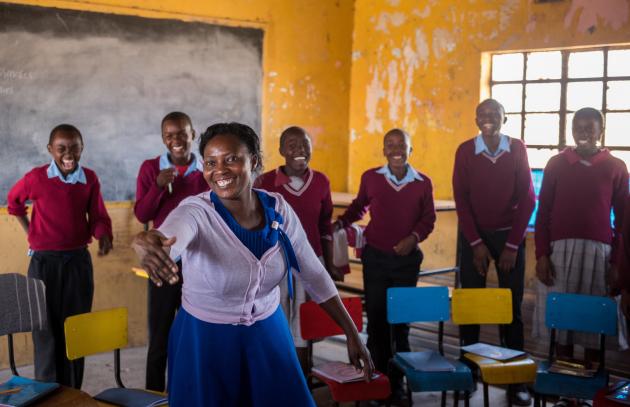psipse_zachary_rosen_sowed_kenya.jpg

By Nancy Palmer, The Partnership to Strengthen Innovation and Practice in Secondary Education (PSIPSE)
There is growing recognition that young people need more than academic knowledge to succeed in school, work, and life. However, as summarized in a Brookings Institution report, “understanding that children need a particular set of skills to live constructively in the 21st century is not the same as an in depth understanding of what those skills are, how they develop, or how to teach them.”
Combined with varying definitions of what they are, life skills are often dismissed as a buzzword. However, if countries are committed to quality secondary education, they must support all youth in developing the skills that are relevant and valuable in their socio-cultural context and the uncertain future that awaits.
The Partnership to Strengthen Innovation and Practice in Secondary Education (PSIPSE) commissioned an in-depth study of 18 projects implemented by PSIPSE partners across seven countries to uncover lessons on how to design, deliver, measure, and scale-up youth life skills interventions. Here are three of them:
Systematically diagnose the life skills youth need
An important starting point for practitioners and policy-makers is deepening their understanding of the skills youth need to navigate their specific circumstances. Two strategies to accomplish this include needs assessments and backwards mapping from policy or programmatic goals to the pathways to achieve those goals. An inclusive and context-specific needs assessment can clarify which skills are valued by different actors at the lowest level of policy or programme implementation, where change has most impact.
Designing programmes and policies this way contributes to a coherent education system – meaning they are integrated in a way conducive to learning. While potentially obvious, these strategies are particularly important given the nuance around life skills.
Embed life skills into the formal education system by modifying how core subjects are taught
The formal education system remains one of the most effective platforms to reach the largest number of youths at scale. Doing this successfully requires supported and motivated teachers. Teachers are often overburdened and trained to prescribe information rather than use a broader set of active learning techniques. In their whole-school ICT integration programme, the Global e-Schools and Communities Initiative (GESCI) adopts a phased approach, supporting teachers to steadily build their confidence in using ICT tools to cultivate specific skills while teaching STEM subjects.
Unfortunately, high-stakes examinations encourage teaching to the test. Modifying assessments (both formative and summative) to measure these skills could motivate teachers to cultivate these skills, supporting alignment between what is taught and how it is taught and assessed. The Luigi Giussani Institute of Higher Education (LGIHE) is aiming to do just that in partnership with the Uganda National Examinations Board (UNEB). In addition to developing an examination that will measure higher order thinking skills like critical thinking, they are supporting teachers and school leaders to adopt practices that promote these skills across academic subjects.
Supplement with standalone life skills sessions to support marginalized youth with specialized needs
Not all life skills can be cultivated in the classroom and building strong interpersonal relationships is difficult when schools are trying move students through the system efficiently. Most PSIPSE partners leverage standalone life skills sessions, bringing in external mentors to facilitate. However, recruiting teachers – and building their capacity to serve as mentors – brings the benefit of scalability and lower attrition rates. CorStone is adopting this approach as they scale their resilience-based programme across the state of Bihar, India, and replicate in Kenya. Aflatoun International and Karibu Tanzania Organization are implementing a programme with Tanzania’s Folk Development Colleges that supports teenage mothers – who are not permitted to attend public schools – to complete their secondary education and become self-sufficient adults.
There are still more questions than answers when it comes to life skills development. Answering these questions will require the same life skills – creativity, critical thinking, communication, and problem solving – that play a foundational role in helping every child thrive.
--------
This article draws extensively from the work completed by PSIPSE’s learning partner team at Mathematica Policy Research, including: Swetha Sridharan, Poonam Ravindranath, Emma Pottinger, and Clemencia Cosentino. To read the full study and the accompanying practitioner and policy-maker-specific focused briefs, visit psipse.org/library






